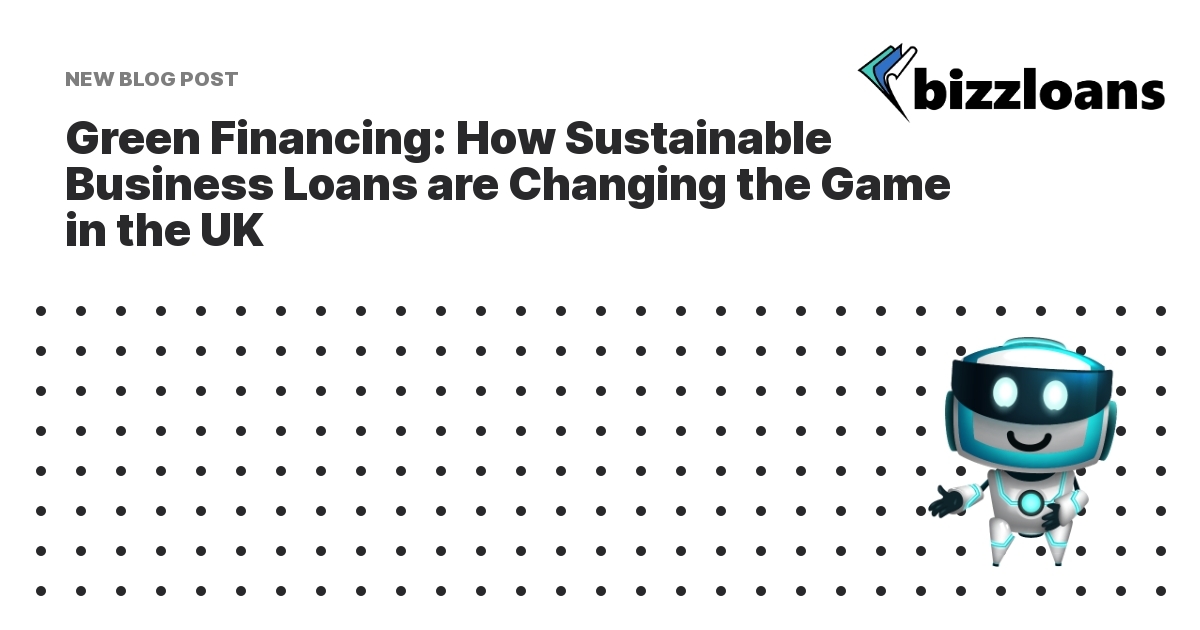Key takeaways:
- Sustainable business loans are gaining traction in the UK banking industry as a key part of the Environmental, Social, and Governance (ESG) framework. Banks can benefit financially from offering green products and services reflecting customers’ demand for socially responsible investments. Research shows that 80% of Austrian retail and corporate clients are interested in green and sustainable products and services.
- Banks need to broaden their view from ESG to include Environmental, Social, Governance and Economic (ESGE) perspectives, a step towards greening finance that requires changes in culture and mindset. Innovative, new ESG products and services developed through cutting-edge technologies can meet the financing needs of businesses while supporting environmental and social goals. Finding funding for sustainable operations is challenging, but green loans offered by banks and financial institutions are available for Small and Medium sized Enterprises (SMEs) that want to invest in renewable energy, green buildings, and pollution prevention. However, professional financial advice should be sought and loan suitability should be assessed carefully before taking on additional debt.
- The UK Green Finance Strategy aims to mobilise green investment, positioning the UK as a global leader in fostering an environmentally sustainable, low-carbon economy. Sustainability-linked loans (SLLs) are a way to link the cost of a loan to the borrower’s performance on certain ESG-related targets, with companies that demonstrate progress on these targets benefitting from more competitive rates both sustainably and financially. Best practices for SLLs are still evolving, but guidelines from the Loan Market Association can act as a useful framework for corporates and lenders alike. Six out of the ten most commonly agreed-upon key performance indicators (KPIs) measure environmental targets, particularly carbon emissions reductions.
###Note Summary (in British English Language):
– Sustainable business loans are gaining popularity in the UK banking industry as part of the ESG framework, providing banks with an opportunity to offer green products and services reflecting the growing demand for environmentally sound investment options. 80% of Austrian retail and corporate clients are interested in green and sustainable products and services.
– Banks need to expand their view beyond ESG to include an Economic perspective (ESGE) and use innovative technologies to develop products and services that companies can use to finance their environmentally sustainable goals.
– Green loans for Small and Medium sized Enterprises (SMEs) offered by banks and financial institutions are a possible funding option for businesses looking to invest in renewable energy, green buildings, and pollution prevention. However, professional financial advice should be sought and loan suitability should be assessed carefully before taking on additional debt.
– The UK Green Finance Strategy targets mobilising green investment to establish the UK as a global leader in creating an environmentally sustainable, low-carbon economy. Sustainability-linked loans (SLLs) offer a way to align financing with ESG-related targets and reward sustainable behaviour. Best practices for SLLs are still evolving, but guidelines from the Loan Market Association offer a useful framework for companies and lenders. Carbon emissions reduction is the most commonly targeted ESG key performance indicator (KPI).
Introduction

Photo Credits: Www.Bizzloans.Co.Uk by Aaron Carter
As the world continues to concentrate on sustainable business practices, green financing is transforming the game in the UK. With the Environmental, Social and Governance (ESG) framework gaining importance, sustainable business loans are becoming an essential part of corporate strategy. In this section, we will take a closer look at the overview of sustainable business loans and how they are driving the move towards a greener economy.
Significance of ESG framework
The ESG framework is key for financial industry success. Companies that don’t consider Environmental, Social, and Governance when making decisions may struggle to attract and keep clients. As sustainability is a priority, banks need to use ESG when offering products and services.
Offering green products and services is a chance to make money for banks. Making loans with ESG criteria helps the environment and customer satisfaction, and boosts reputation. Customers want to support sustainable initiatives, so they’re more likely to choose banks that promote values.
ESGE (Environmental Social Governance Extended) looks at sustainability from all perspectives. Technology is essential for ESGE strategies. Data analytics tools and platforms help firms measure their performance and make changes. Technology partners like fintech startups can build custom dashboards to help borrowers understand ESG impact better.
Innovating and launching ESG products is important for banks. Creating products that support sustainable development is key for economic growth and reducing our footprint. Businesses should use this as a chance to lead on sustainability standards.
Banks must focus on retaining existing clients and attracting new ones. With competition around Green Financing, customers’ retention relies on how engaged multipliers of bank relationships are during loan applications.
Smaller businesses also need support. Banks should offer green loan products for small-to-medium enterprises (SMEs), raising awareness of sustainability practices and benefits. Financial advice on how to make an environmental impact is vital for customers’ success.
Sustainability-Linked Loans (SLLs) are tied to borrowers meeting sustainability targets. This provides environmental benefits and covers a broad range of industries. SLLs help companies become more efficient and future-proof their business model. They also help visibility with investors who recognize ESG standards.
Standardization across SLLs is hard to achieve. However, banks can take steps to establish best practices around Environmental Key Performance Indicators (KPIs). The UK government has launched a Green Finance strategy to invest in low-carbon infrastructure. This aims to promote growth in Green Financing within banking institutions.
ESG framework implementation helps design flexible business models for banks that want long-term sustainability. Banks that proactively embrace this transition will maintain market credibility by helping clients navigate uncertainty towards a sustainable future and growing revenues sustainably. Sustainable business loans are good for the environment and good business.
Overview of sustainable business loans
Sustainable business loans have become increasingly popular in the UK’s finance industry. They prioritize environmental and social responsibility, so businesses can get capital while emphasizing sustainable practices. Financial institutions can give themselves a market edge by using ESG practices and offering green products and services. AI can help interpret complex data sets to make decisions based on environmental impact, and create an Economic Social Governance Environment.
Banks must innovate and launch new ESG products. They should build relationships with clients, based on trust, transparency and participation towards sustainability. This will help their reputation and attract customers wanting green finance solutions.
Sustainability-linked loans have changed the finance industry. Performance-based pricing incentives link to environmental KPIs. Targets should be achievable, with well-defined KPIs and a framework linking them to pricing procedures. This mobilizes private investors towards eco-friendly investments. It also provides banks with financial incentives for promoting sustainable practices.
Revenue Opportunity for Banks

Photo Credits: Www.Bizzloans.Co.Uk by Albert Flores
As sustainable business loans gain popularity in the UK, banks have a revenue opportunity that they cannot afford to overlook. This section explores the importance of considering environmental, social, and governance factors when offering green financial products and services. Additionally, we’ll take a closer look at the benefits of offering these sustainable options to customers.
Green financing is changing the game for UK banks, so get ready to discover more.
Banks need to consider ESG
Banks need to think about ESG (Environmental, Social, and Governance) when giving loans. As the main financial go-betweens, banks must take responsibility for their effect on society and nature. By taking on ESG rules, they can deal with risks productively and add to sustainable development.
ESG principles help banks assess the social and ecological impact of the loans they give and guarantee that borrowers adhere to responsible governance principles.
ESG standards in their loan procedures assist banks with decreasing high-risk loans while advancing corporate responsibility. By presenting green items like sustainability loans and sustainability connected loans, banks can draw in environmentally conscious customers who prefer doing business with socially responsible financial establishments. Taking on sustainable operations brings about cost investment funds while positively adding to society through sustainable financing.
Likewise, technology assumes a fundamental part in executing ESG objectives efficiently. Banks can utilize technology to assemble data from various areas and make educated venture choices dependent on solid data.
By taking on ESG principles, banks can have a genuine effect on the climate and society while dealing with risks and improving financial performance.
Benefits of offering green products and services
Offering green products and services brings many advantages to financial institutions. This proves they’re eco-friendly, reducing the carbon footprint of businesses. Additionally, ESG frameworks can help businesses meet sustainability goals. Plus, green products and services offer a way for financial institutions to diversify revenue streams. As customers search for sustainable finance solutions, the institution can make more profits.
Moreover, green products and services show customers that the institution values their beliefs. This creates long-term relationships and customer loyalty. In summary, green finance options benefit society, the environment, and stakeholders. Companies should create incentive structures to promote environmentally conscious practices. Doing so will bring numerous benefits to financial institutions who offer green products and services.
Expanding ESG to ESGE

Photo Credits: Www.Bizzloans.Co.Uk by Vincent Lee
As we continue towards a more sustainable future, adopting sustainable business practices is more crucial than ever. In this section, we will explore the evolving definition of ESG to ESGE and its implications for sustainable finance. We will take a closer look at Environmental, Social and Governance (ESG) factors and the role of technology in driving the ESGE movement. Furthermore, we will delve deeper into the intricacies of green financing and how it is transforming the UK’s financial landscape.
Environmental Social Governance
Recently, Environmental Social Governance (ESG) has become the main focus for corporations. Several major banks have started to view ESG as an imperative factor in their loan activities. They put these ESG principles into their banking rules to promote sustainable finance. This not only safeguards society but also protects the banks from risks related to unsustainable development.
ESG is usually mentioned alongside sustainability-linked loans (SLLs). Such loans let companies that follow pre-determined sustainability objectives, set by the lender, to access more desirable terms than usual loan structures. With SLLs, companies are held accountable for adhering to certain ESG factors such as environmental management, labor relations, and human rights issues.
Banks wishful to accept ESG must integrate technology tools for making and managing such products effectively. Automated tools can help find relevant sustainable projects based on ESG in real-time while eliminating manual processes.
Overall, ESG practices are essential for businesses who want lasting success and risk mitigation worldwide. Banks play a key role in encouraging this transition through providing tailored financial products that align with the United Kingdom’s Green Finance Strategy published last year. ESG moves from paper-based reports to digital tracking, using technology to boost sustainability efforts.
Role of technology in ESGE
The use of tech for ESG can’t be ignored. Banks can measure and manage key environmental, social, and governance (ESG) risks and opportunities with tech. This helps detect trends, risk management, and develop sustainable finance products. Fintech companies create specialized solutions for monitoring sustainability elements throughout the supply chain. AI monitors data sources such as energy usage, carbon emissions, and employee satisfaction levels. Blockchain tech brings transparency to green project financing.
Tech doesn’t replace human interaction. The connection between banks and clients must be strong to adopt new technologies, support new sustainability products, and ensure success. To gain the most from tech in ESG, and avoid problems, one needs to think creatively about how new tech can support traditional banking relationships.
Banks that don’t use digital solutions may miss out on emerging markets where customers want more transparency, accountability, and environmental performance from their financiers. To make a real impact on the environment, green innovation is important for banks wanting to earn sustainable business loans.
Concrete Steps for Banks

Photo Credits: Www.Bizzloans.Co.Uk by Juan Martin
Banks in the UK are taking concrete steps towards sustainability by innovating and launching new Environmental, Social, and Governance (ESG) products. With the increasing importance of sustainability in business, it is critical for banks to adapt and offer green financing solutions. In this section, we will explore the initiatives taken by UK banks in introducing green financial products to support sustainable businesses.
Innovating and launching new ESG products
Banking industry is shifting towards ESG framework. This creates a need to innovate & launch new products. Banks must consider ESG factors to offer green products & services. Benefits include increased revenue & new clients.
ESG must expand to include Ethics. Technology plays a significant role in this by aiding data analysis, transparency & investor engagement. Training employees for ESGE will help banks establish trust.
Innovating & launching new ESG products require understanding & strategies reflecting market demands. Banks should use analytics to identify trends, collaborate with others & make use of financial instruments.
To set a sustainable finance strategy, banks should partner with government agencies & build a regulatory environment that encourages renewable energy projects, clean transport tech & energy-efficient buildings. This creates opportunities for innovation.
Sustainability is a vital aspect of modern business practices. By innovating & launching new ESG products, banks can contribute to the sustainable future & benefit their business.
Importance of sustainability in business
The importance of sustainability in business is now essential. Climate change is worrying and impacting our environment, so businesses must prioritize sustainability to survive. To promote sustainability, companies must take into account environmental, social, and governance factors.
Adopting sustainable practices can give businesses many advantages. These include cost savings from energy efficiency, a better reputation with investors, customers, and staff. Harvard Business Review showed that companies that prioritize sustainability are more likely to succeed. So, sustainability is an area financial institutions must focus on. It meets regulatory objectives and creates revenue streams with green products and services.
Organizations should use an ESG (Environmental, Social, and Governance) framework to identify and improve areas of concern. Technology integration is vital for banks to monitor their ESG efforts and provide data analytics in real-time.
SMEs (Small to Medium Enterprises) are increasingly using green financing options. Banks that help these enterprises have a big role in sustainable development and economic growth. Banks can set themselves apart by giving guidance and expertise in sustainable solutions.
SLLs (Sustainability Linked Loans) are popular for businesses that want to be eco-friendly. Banks offering green loan products shows the shift towards sustainable finance in the industry. This supports holistic goals.
Challenges for Banks

Photo Credits: Www.Bizzloans.Co.Uk by George Lopez
Banks in the UK are currently facing major challenges in light of the growing popularity of sustainable business loans. While retaining and attracting clients continues to be a top priority, building strong relationships with clients is equally crucial. With the significant impact of green financing, banks must adapt quickly to remain competitive and meet the evolving needs of their clients.
Retaining and attracting clients
Banks face a challenge. They’re switching focus to sustainable financing, while trying to keep and get more customers. Clients are more aware of the environment and social responsibility. They demand transparency from financial service providers. Banks must act fast, offering eco-friendly products and services to stay competitive.
Clients also want personalized products that reflect their values. Banks must work with customers to customize offerings. At the same time, they must stick to ethical standards.
To keep and get clients, banks must show transparency, accountability, and consistency in sustainable business practices. For instance, they must regularly share ESG performance data. This proves their commitment to sustainable finance.
Importance of building relationships with clients
Developing strong bonds with customers is essential for the banking sector. Banks take an individualized approach to clients, meeting their unique needs and investment objectives. This helps them understand their financial situation better and help them reach long-term targets. By gaining trust and loyalty, banks can keep existing customers instead of always searching for new ones.
Good communication is key to sustaining relationships. Regular updates, changes in regulations, and global trends that may affect investments are all useful ways to show that banks care about their customers’ success and want to help them reach their goals. Providing portfolio updates, social media posts, blogs, or webinars with industry experts is also necessary to stay connected with customers.
Offering green investment projects is a unique way to form long customer relationships. These involve renewable energy sources, cutting carbon footprints in factories, or promoting recycling practices. Businesses are more likely to do business with entities that practice robust ESG policies; having eco-friendly projects can open up chances to expand investments while maintaining sustainability.
Creating a good reputation is based on public trust. By focusing on transparency and engagement, banks can acquire value for shareholders and serve wider societal goals, becoming purpose-driven. They can access long-term funding through eco-point-based credits associated with green financing accords. Thus, it’s important that banks focus on forming lasting customer relationships with transparency, communication, and eco-friendly initiatives.
Green Loans for SMEs

Photo Credits: Www.Bizzloans.Co.Uk by Patrick Lopez
For smaller businesses in the UK, sustainability is becoming increasingly important. In this section, we will examine how green loans are changing the SME landscape. We will cover topics ranging from the significance of sustainability to seeking professional financial advice. We will explore the latest techniques and trends that can help your business flourish in this eco-conscious era.
According to data from Sustainable Finance Business, there’s a growing demand for green financing options for businesses. So, let’s dive in and discover how your SME can take advantage of this burgeoning market.
Importance of sustainability for smaller businesses
Sustainability is now a key factor for businesses of all sizes, including smaller ones. Customers are asking for socially responsible companies, so businesses are implementing sustainable practices to lower their carbon footprint and add value for customers and employees.
Financial institutions offer ‘green financing‘ options that meet business needs. This helps them make eco-friendly decisions while also getting access to new funding structures that support sustainability. With more financing, businesses can implement environmental projects in complex supply chains without hurting profit growth.
Green financing products let businesses get funds to promote sustainable practices. Financial institutions provide solutions that focus on energy efficiency and reduced emissions, which can benefit both the business and the planet.
More and more companies are making progress towards ethical and environmental targets. We anticipate smaller firms to do the same, showing the significance of sustainability for smaller businesses. Collaboration from all stakeholders is essential if we’re going to be successful with sustainability.
If you want to make green choices, don’t hesitate to ask for help from a financial advisor. We can work together for a greener future.
Seeking professional financial advice
Sustainability is now a big focus for small and medium-sized enterprises (SMEs). To make sure SMEs prioritize this, they need expert financial advice. Working with an informed advisor gives SMEs insight into their options and helps them make smart decisions about financing and investment.
Sustainable business management has many elements. Smaller businesses may not have the tools to hire sustainability experts or do research. Financial advisors can be the answer, providing guidance to SMEs on assessing their current practices and finding areas for improvement. This includes supply chains, energy use, and waste management. Financial advisors can also give advice on available financing for green projects, like renewable energy and reducing carbon emissions.
It’s key for SMEs to find advisors with knowledge of the ESG framework and sustainable finance. Advisors who specialize in sustainable investing or corporate social responsibility may be ideal. By working with experienced advisors, SMEs can easily navigate sustainable finance and work towards long-term success.
Sustainability Linked Loans

Photo Credits: Www.Bizzloans.Co.Uk by Jose Garcia
Sustainability-linked loans (SLLs) are a growing financing option for UK companies. This section will examine SLLs, their benefits, and the lack of standardization in this financing option, which poses a challenge for sustainable initiatives. Let’s explore how SLLs are changing the game for sustainability-focused businesses in the UK.
Definition and benefits of SLLs
Sustainability Linked Loans (SLLs) are a novel financial product. As their name implies, they attach importance to sustainability performance targets. These may include reducing greenhouse gas emissions and other environmental, social, and governance (ESG) considerations.
Essentially, SLLs are traditional loans with an extra layer of sustainability criteria. They give businesses the chance to display their commitment to sustainability. This increased visibility boosts the company’s reputation and may even draw in additional investors who prioritize sustainable practices.
Moreover, SLLs offer differentiated pricing based on sustainability metrics. Positive results in meeting sustainability goals can lead to lower interest payments. On the other hand, unfavorable results result in higher interest payments.
SLLs are unique in that they provide companies the chance to gain financially while still promoting sustainable practices. In the past, achieving top ESG ratings was seen as an economic cost instead of a money-making opportunity. But, SLLs have changed that. They make it possible to make money and support sustainability at the same time.
Lack of standardization in SLLs
SLLs (Sustainability-Linked Loans) in the UK face a challenge. These loans link interest rates to ESG criteria, e.g. carbon reduction targets. But, there is a lack of standards. This makes it hard for lenders and borrowers to agree on terms.
Demand for sustainable finance products is increasing. Some lenders ask borrowers to show progress before offering low rates. So, many borrowers have no access to suitable SLLs.
Industry players are asking for standardized criteria, to help banks offer green loans more uniformly. It would benefit both lenders and borrowers by providing clarity and certainty. It would reduce costs too.
Smaller businesses without the resources to meet individual bank requirements would benefit. Also, businesses across sectors could adopt eco-friendly measures consistently.
Standardizing SLLs would facilitate the development of a more comprehensive market for sustainable finance products. It would enable eco-lending linked to environmental KPIs, e.g. carbon capture tech. Banks must collaborate to unify SLL criteria and ensure this sector is widely adopted. Setting achievable environmental targets is also key.
Best Practices for SLLs

Photo Credits: Www.Bizzloans.Co.Uk by Kyle Davis
Sustainable business loans are indeed becoming popular in the UK, providing a means for businesses to grow while mitigating their ecological impact. In this section, we will delve into best practices for sustainability-linked loans, emphasizing the significance of establishing realistic goals and the impact of environmental key performance indicators (KPIs). With the appropriate approach, sustainable business loans can drive significant, positive transformation for both businesses and the environment.
Environmental KPIs and their influence on SLLs
Environmental Key Performance Indicators (KPIs) are important for Sustainability Linked Loans (SLLs). Banks must require borrowers to aim for ambitious KPIs for sustainable progress. This can help companies reduce their carbon footprint and use of water, waste, and emissions.
Lenders can use Environmental KPIs to offer interest discounts or other rewards for meeting targets. This rewards borrowers for performance, while providing returns for investors.
No standard framework exists for measuring Environmental KPIs. But, popular ones include energy consumption, CO2 emissions, renewable energy use, water usage, and recycling percentages. So, banks have started introducing SLL frameworks that award companies based on standards such as carbon reductions or green tech adoption.
To ensure borrowers keep adopting sustainable practices, lenders must involve many stakeholders. Banks can collaborate with sustainability consultants and industry experts. By setting benchmarks and milestones on loan schedules, companies can plan to meet objectives.
Importance of setting achievable targets
Achieving sustainability goals in finance needs achievable targets which align with business objectives. ESG criteria are necessary to decide targets. To make sure they are practicable, we must set SMART metrics which consider organizational capacity, resources and timelines. Transparency and disclosure of how banks plan to reach targets builds trust with stakeholders.
Sustainability-linked loans (SLLs) are financial tools which encourage sustainable practices. They link financial incentives with environmental KPIs. By combining ESG and financial performance measurements, lenders can adopt a performance-based approach which promotes good governance and socially responsible decisions. The UK’s Green Finance Strategy uses SLLs to mobilize investments towards a low-carbon economy.
To tailor targets for clients, banks can use machine learning algorithms. They can find patterns and give insights to measure metric performance. This enables them to set distinct targets based on clients’ realities instead of generic thresholds for sectors or regions.
The UK’s Green Finance Strategy has placed the country at the forefront of green finance. Achievable targets, ESG criteria, SLLs and advanced data analytics make sustainable finance more accessible and effective.
UK’s Green Finance Strategy

Photo Credits: Www.Bizzloans.Co.Uk by Carl Roberts
With the threat of climate change looming, the UK government has implemented a Green Finance Strategy to promote sustainable finance and reduce the country’s carbon emissions. This section will explore the objectives of this strategy, detailing how it aims to increase green investment and outlining the plan in detail. The ultimate goal of this strategy is to establish green finance as the standard in the UK, setting the stage for a more sustainable future.
Mobilizing green investment
Financial organizations hold great potential for mobilizing green investment. They can provide financial products like green bonds, sustainable business loans, and sustainability-linked loans with beneficial terms for eco-friendly projects. Collaborating with public sector institutions and asset managers to invest in low-carbon projects, such as renewable energy infrastructure or waste management schemes, is another means for mobilizing green investment.
If banks wish to succeed, they must have a deep understanding of environmental risks and possibilities. It’s essential to identify where their expertise can be used for conserving ecosystems while addressing climate change. This may include research on novel technologies that cut down the carbon footprint during operations.
In 2019, the UK Government released the Green Finance Strategy. Its goal is for businesses to disclose how climate risks influence their financial performance. This initiative requires organizations to report any exposure to climate-related risks, such as flooding or supply chain disruptions caused by extreme weather events.
Mobilizing green investment is key for attaining long-term sustainability aims. It involves preserving nature and controlling pollution levels. Hence, financial institutions must adopt eco-friendly practices and promote innovative solutions that promote responsible financing activities. The UK’s Green Finance Strategy stresses increasing transparency in sustainable finance matters among investors, while encouraging informed decisions in different sectors of the economy – aiming for long-term economic growth.
Overview of the strategy
The UK’s Green Finance Strategy is all about sustainable investing for a greener future. Financial institutions are using facts to drive the shift to sustainable business practices. The strategy includes:
- investing in new tech
- creating an environmental impact framework
- funding green infrastructure projects
- more transparency around climate risks
To help put the plan into action, the UK government set up the Green Technical Advisory Group (GTAG) and the Green Finance Institute.
This shows the country’s commitment to green finance. As part of the Strategy, they are setting standards for ‘sustainability linked loans’ (SLLs) and investing £3 billion in energy-efficient buildings by 2030. This reflects the trend towards sustainable investing and responsible lending.
For finance companies to prioritize ESG factors, standardization of loan products is needed. This will help them make smart decisions about climate risks, and meet clients’ preferences while still making money.
Green financing has gone beyond being just a buzzword – it’s essential for a sustainable future in the UK.
Conclusion

Photo Credits: Www.Bizzloans.Co.Uk by Samuel Jones
In the concluding section of this article on Green Financing and Sustainable Business Loans in the UK, we will summarize the key points discussed previously. Additionally, we will examine the future outlook of sustainable finance in the UK, considering the potential transformative impact that green financing could have on businesses and the wider economy.
Summary of key points
Sustainable business loans are getting more important. Companies must add ESG (environmental, social, and governance) practices to their operations. Banks need to think beyond conventional practices and use tech for ESGE (environmental, social, governance, and economic) outcomes. Offering green products and services can create revenue and be good for the environment.
In the UK, there are over £8bn of sustainable investment opportunities. Sustainability is crucial for institutional investors. Sustainability Linked Loans encourage borrowers with environmental KPIs. The UK’s Green Finance Strategy plans to mobilize £40bn for green investments by 2025. Banks must have strong relationships with clients to offer ESG products/services.
Banks must innovate and launch new ESG products. They should keep communicating with their clients. SMEs who want financial advice on green loans can positively affect the environment and improve their finances by following these steps.
Future outlook for sustainable finance
The future of sustainable finance looks bright. Banks are recognising the importance of ESG in their operations, which will bring in new revenue while enhancing reputation and attracting clients. AI and carbon pricing can help the environment through clean energy investments and improving predictions of supply chains.
To meet demands, banks must innovate. This includes launching ESG products like SLLs, aligned with KPIs that reflect climate change urgency. They must also reduce carbon footprints and improve sustainability in supply chains. Smaller businesses can benefit from green loans and eco-friendly advice.
The UK’s Green Finance Strategy is aiming to promote clean tech and decarbonisation programs such as EV infrastructure. This follows the COP26 Glasgow 2021 summit calls for action to tackle climate change.
Achievable targets for climate commitments are vital. Educating stakeholders on analytics will guarantee data transparency and reliable performance results in ESG investments or financial products.
Five Facts About Green Financing: How Sustainable Business Loans are Changing the Game in the UK:
- ✅ Financial services businesses can use the ESG (environmental, social, and governance) framework to fund and de-risk the shift towards a greener world. (Source: AD Little)
- ✅ Introducing green products and services to new and existing customers can offer banks an enormous revenue opportunity. (Source: AD Little)
- ✅ Greening finance requires changes in culture and mindset, expanding ESG considerations to include an economic perspective, creating ESGE (environmental, social, governance, and economic). (Source: AD Little)
- ✅ Green loans offered by banks and financial institutions may be an option for SMEs looking to invest in renewable energy, green buildings, and pollution prevention. (Source: British Business Bank)
- ✅ Sustainability Linked Loans (SLLs) link the cost of a loan to a borrower’s performance on certain ESG related targets, with companies making progress benefiting from more competitive rates. (Source: PwC UK)
###Note Summary (in British English Language):
– Green financing is using the ESG framework to fund and de-risk the shift to a greener world.
– Offering green products and services can provide banks with significant revenue opportunities.
– Greening finance requires changes in culture, mindset and includes an economic perspective.
– Green loans may be an option for SMEs looking to invest in renewable energy, green buildings, and pollution prevention.
– Sustainability Linked Loans link the cost of a loan to a borrower’s performance on certain ESG related targets. Companies making progress benefit from more competitive rates.
FAQs about Green Financing: How Sustainable Business Loans Are Changing The Game In The Uk
What is Green Financing?
Green financing is the concept of providing financial services that take into account the environmental impact of business operations. It includes loans, investments, and other financial products aimed at promoting sustainable practices and reducing the carbon footprint.
What are the benefits of Sustainability Linked Loans (SLLs)?
Sustainability Linked Loans (SLLs) link the cost of the loan to the borrower’s performance on certain ESG (environmental, social, and governance) related targets. Companies that demonstrate progress on these targets benefit from more competitive rates. This creates incentives for companies to achieve their sustainability goals and benefits lenders who are committed to ESG and net-zero goals.
What should be considered when looking for green loans?
When looking for green loans, it is important to shop around and get professional financial advice. Loans may not be suitable for all businesses as they can be more expensive to pay back than the initial capital loaned and may require security such as business or personal assets. Approval for finance is subject to status, application, and eligibility.
What is the role of ESG framework in Green Financing?
Financial services businesses can use the ESG (environmental, social, and governance) framework to fund and de-risk the shift to a greener world. By expanding ESG considerations to include an economic perspective (creating ESGE), this framework can bring cultural and mindset changes that can drive innovation and launch new ESG products and services.
What is the importance of cookies on Norton Rose Fulbright’s website?
Norton Rose Fulbright uses cookies and similar technology to collect data about users. It is used to deliver online services, measure website audience, and improve the browsing experience. Users need to click OK to signify their consent to the use of cookies. Consent can be withdrawn by clicking “manage cookies” and following the instructions provided.
How can SMEs access external finance to support net-zero actions?
Research shows that 11% of SMEs have accessed external finance to support net-zero actions, and 22% plan to do so within the next five years. Finding funding for sustainable operations can be difficult, but incentives and grants are available. Green loans offered by banks and financial institutions may be an option for SMEs looking to invest in renewable energy, green buildings, and pollution prevention. It’s important to seek professional financial advice and shop around as loans may not be suitable for all businesses. Loans can be more expensive to pay back than the initial capital loaned and may require security such as business or personal assets. Approval for finance is subject to status, application, and eligibility.
Note Summary (in British English Language):
A notes summary is required in British English language. It should be detailed, covering all information in a journalistic style. It should be written in a clear, concise, and engaging manner, free from errors and organised in a logical structure. The summary should be tailored to the target audience, and include all important details and facts.


